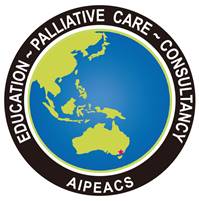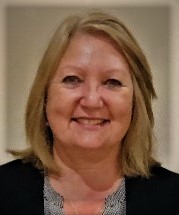
 Julie Paul, Director, AIPEACS
Julie Paul, Director, AIPEACS
今月は、アドバンス・ケア・プラニング(ACP)についておさらいをしましょう。医療従事者と患者の間でACPについての会話をすることについての理解を促すのは、医療専門家として私たちがどれだけ心配することなく安心して取り組めるかにかかっています。
あなたがあなた自身のACPを作成しているかに興味があります。少なくとも、あなたが望むケア、あるいは、望まないケアについて考えたことがあり、そのことをあなたが自分の意思表示ができない状態になったときにあなたに代わって医療についての決定をしてくれる人に伝えているでしょうか。あなたの両親やパートナーに彼らの望むことについて話をしたことがありますか? 他の人が何を望んでいるかを我々が知っていると推測することはできないことです。私たち自身のアドバンス・ケア・プラニングについて考えることは、患者とこのような会話を持つことで、患者の願いや好みが尊重されることを確実にするために役立つでしょう。
オーストラリア、英国、米国、カナダ、アイルランドには、この分野でのあなたの成長をサポートするウェブ上で自由に利用できる情報があります。あなたが特に興味を持っている分野で有用な情報を見つけられない場合は、私に知らせてくだされば、探すお手伝いができると思います。
アジア太平洋小児緩和ケア・バーチャル・ラーニングとフェローシップフォーラムでは、子供のためのアドバンス・ケア・プラニングに直接関連する会議が開催されます。発表者が日本の医師であることは、素晴らしいことです。興味のある方は、無料の登録方法については、下記を参照ください。
発表者:余谷 暢之(Yotani, Nobuyuki) 医師(博士)、ZOOM方式にて英語で発表
開催日:2021年4月13日、開催場所:シンガポール
時 間:午後2時~3時(日本時間)、午後1時~2時(シンガポール時間)
登録については、secretariat@aphn.org のAPHN事務局にお問い合わせください。
Jama Network には、2020年2月26日に出版された「心不全患者に対する緩和ケアの問題」という興味深い記事があり、心不全患者の所定の治療手順の一部として常に緩和ケアを提供する必要が重要であることを再認識させてくれます。著者は、そのようにすることの主たる理由、そして、心不全患者の要求を満たすために治療方法を変更することの理由について検討しています。特に議論されていないですが、ACPの必要性について気付かせてくれます。ぜひ、この記事を下記よりアクセスして読まれることをお勧めします:
https://jamanetwork.com/journals/jamanetworkopen/fullarticle/2761859
追加情報が必要な特定の領域がある場合は、(英語または日本語で)要望を私宛に下記アドレスまで連絡ください:julie@palliativeeducation.com 必ず取り上げます。緩和ケアについての皆さんの経験について教えてください。お互いの考えや経験を共有することで学びあえると思います。
パンデミックが続く間は、どうぞ安全にお過ごしください。
では、次の月にお目にかかれることを楽しみにしています。
ごきげんよう、Julie
-
- [事務局より]
-
直接、ジュリーさんに、メールを出しにくい場合は、ご遠慮なく、ジェックス事務局(nurse@jeccs.org ) まで、日本語でご連絡ください。感想、質問などをお待ちしています。
- Disclaimer: April 2021 免責条項:
- Australian International Palliative Education and Consultancy Services (AIPEACS) は、Julie’s Corner シリーズ内の内容につき正確な情報の提供に細心の注意を注いでいますが、特にある事柄についての専門的意見を提供するものではありません。このシリーズに含まれる情報は、独立した専門家の見解に取って代るものではありません。また、医療上の助言として利用したり、何らかの疾患の治療、手当、又は、予防のために使用されるものではありません。
- AIPEACSは、このシリーズにより提供される情報の利用、依存によるいかなる法的責任、怪我、紛失、損害については、責任は負いません
- Australian International Palliative Education and Consultancy Services Pty. Ltd
Julie’s Corner: April 2021 (原文)
-
-
Let’s revisit Advance Care Planning this month. The uptake of advance care planning discussions within health professionals and patients is very dependent on how comfortable we are as the health professional in having these conversations.
I am curious do you have your own Advance Care Plan? Have you at least thought about the type of care you would or would not want and communicated this to the person who will be making health care decisions on your behalf, if you are unable to communicate this yourself? Have you spoken to your parents / your partner about their wishes? We cannot assume that we know what someone else would want. Thinking about our own Advance Care Plan is a helpful way to start to think about how we might have these conversations with patients to ensure their wishes and preferences are respected.
-
The World Health Organisation (WHO) has released new evidence informed guidelines for the management of chronic pain in children. The guidelines focus on physical, psychological, and pharmacological interventions for the management of primary and secondary chronic pain in children 0 to 19 years of age. https://www.who.int/publications/i/item/9789240017870. If you are caring for children with chronic pain, you will find this an invaluable resource to support your practice.
-
Recently I came across a website describing an organisation in America called Keiro and Providence Health and Services. They have amongst other areas developed a partnership to provide culturally sensitive palliative care to Japanese Americans and Japanese speaking older adults who are living with chronic illness.
Whilst I do not know personally the work of this organisation the value of this website is most of their information is in Japanese, which will assist you to ascertain if the resources are helpful for your practice. https://www.keiro.org/jp
-
-
If you have any particular areas you would like additional information on, please forward your request (either in English or Japanese) to julie@palliativeeducation.com and we will ensure that this is discussed.
Please let me know how you are going as we would enjoy sharing your thoughts and experiences on palliative care, so that we can continue to learn from each other.
-
Please stay safe during the pandemic. I am looking forward to our next month’s catch up.
Take care Julie
